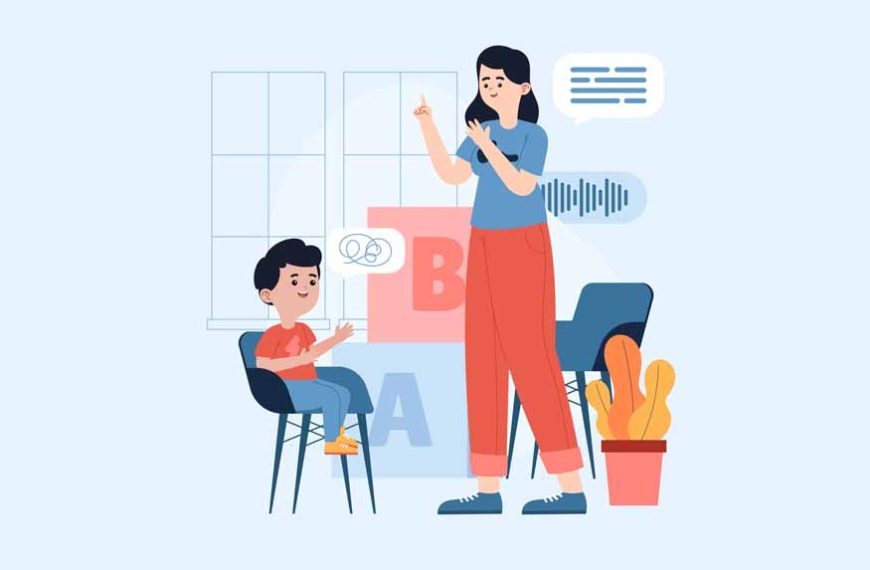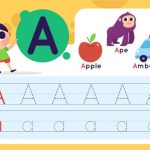What Advantages Does Student Counselling Offer in Enhancing the Overall Performance of a Child?
In the fast-paced and demanding world of education, students face various challenges that can impact their overall well-being and academic performance. Here’s where educational counselling steps in, providing support and guidance to students at various stages of their academic journey.
Beyond the traditional roles of educators and parents, student counsellors play a crucial part in understanding and addressing the diverse needs of students. This personalised guidance ensures that a child’s academic pursuits align with their interests and strengths.
Let’s delve into the core concept of student counselling and the key advantages it offers in enhancing the overall performance of a child.
What is Student Counselling?
Student counselling is a specialised form of support provided to students to address a wide range of challenges they may encounter during their educational journey. The primary objective of student counselling is to assist individuals in navigating the complexities of school life and personal development, ultimately nurturing their overall well-being and success.
Student counselling involves one-on-one sessions between a trained counsellor and a student, where discussions can cover a variety of topics, such as academic concerns, career guidance, personal issues, emotional challenges, and social interactions. The counsellor works collaboratively with the student to explore their thoughts, feelings, and experiences, aiming to provide guidance, insight, and practical solutions for overcoming obstacles.
When to Seek Educational Counselling?
- A noticeable decline in academic performance can be a red flag. If grades consistently fall, despite efforts to improve, it might be indicative of underlying issues.
- Significant behavioural changes or signs of emotional distress, such as withdrawal, mood swings, or a sudden lack of interest in academics, may warrant seeking educational counselling.
- If a student faces challenges relating to peers, teachers, or family members, educational counselling can offer guidance on improving communication and fostering healthy relationships.
- Struggling with time management and organisation can hinder academic success. If deadlines are missed, assignments pile up, and stress becomes overwhelming, it’s time to seek help.
Key Advantages of Student Counselling
- Personalised Guidance:
- Managing Academic Struggles:
- Promoting Self-Awareness:
- Enhancing Communication Skills:
- Time Management & Goal Setting:
- Effective Stress Management:
- Building Self-Esteem:
- Conflict Resolution:
- Boosting Strength:
- Parental Involvement and Collaboration:
Every student is unique, and their challenges are equally diverse. Student counsellors provide personalised guidance tailored to individual needs. This one-on-one attention allows for a deeper understanding of a student’s strengths, weaknesses, and aspirations, leading to targeted interventions that address specific academic hurdles.
Academic challenges can arise from a variety of factors – learning disabilities, difficulties in concentration, or simply a lack of motivation. Student counselling helps identify these issues early on, allowing for timely interventions such as tutoring, special accommodations, or alternative learning strategies, ultimately boosting academic performance.
Understanding oneself is extremely important. Student counselling facilitates self-discovery by encouraging students to reflect on their goals, values, and inspirations. This self-awareness empowers them to make informed decisions about their education, paving the way for a more purposeful academic journey.
Effective communication is a cornerstone of academic success. Student counsellors work with students to improve their communication skills, helping them articulate their thoughts clearly, express concerns, and interact positively with peers and educators. Improved communication promotes a conducive learning environment.
Success in academics often depends upon effective time management and goal setting. Counselling assists students in developing these essential skills, enabling them to prioritise tasks, set achievable goals, and stay organised. Improved time management directly influences academic productivity and success.
In the fast-paced world of education, students often face stress and anxiety. Counselling equips them with coping mechanisms, empowering them to manage academic pressure effectively. Reduced stress levels positively impact a child’s focus, concentration, and overall academic performance.
One of the primary objectives of student counselling is to boost a child’s self-esteem. Counsellors work with students to identify their strengths, celebrate achievements, and address areas for improvement. A positive self-image enhances a student’s confidence and resilience, creating a conducive environment for academic success.
Conflicts are an inevitable part of life. Student counsellors equip children with conflict resolution skills, teaching them how to handle disagreements constructively. This skill not only fosters healthier relationships within the academic setting but also prepares students for challenges they may encounter in their personal and professional lives.
Setbacks are a natural part of any academic journey. Student counselling equips students with resilience-building strategies, teaching them how to bounce back from challenges, manage stress, and strive in times of adversity. This resilience is a valuable asset in navigating the complexities of education.
Student counsellors often collaborate with parents to create a comprehensive support system. Open communication between parents, educators, and counsellors ensures that everyone is aligned in supporting the student’s academic and personal development, promoting a holistic approach to education.
Conclusion
Counselling has the potential to benefit students in many more ways. Educational counsellors help students reach their full potential by providing early intervention, individualised support, and guidance to help them overcome obstacles and make wise decisions. Incorporating student counselling into the educational framework helps in addressing stress management, decoding child behaviour, and ultimately promoting holistic development.
FAQs on Student Counselling
Q1: How does counselling contribute to academic success? Ans: Counselling enhances academic success by addressing individual needs, fostering emotional intelligence, and tailoring strategies for optimal learning.
Q2: Is student counselling only for academically struggling students? Ans: No, counselling benefits all students by promoting emotional well-being, effective communication, and personalised academic approaches.
Q3: How can parents actively support counselling efforts? Ans: Parents play a crucial role by fostering open communication, encouraging self-expression, and collaborating with counsellors to implement strategies at home.
Q4: Are the effects of student counselling long-lasting? Ans: Yes, the positive impact of counselling extends beyond immediate improvements, influencing a child’s overall development and future success.
Q5: Can counselling help in career development? Ans: Absolutely! Counselling guides students in understanding their strengths, interests, and career paths, facilitating informed decisions for future endeavours.
Q6: How can student counselling contribute to stress management in the context of education? Ans: Counselling provides a safe space to discuss and understand the sources of stress. Counsellors offer coping strategies, time management skills, and emotional support, empowering students to manage academic pressures.
Q7: How does counselling impact a child’s social skills and relationships with peers? Ans: Counselling encourages social skill development through effective communication, conflict resolution, and collaboration, encouraging positive peer relationships.
Q8: Can counselling make a difference in a child’s self-esteem? Ans: Yes, counselling significantly impacts self-esteem by identifying strengths, providing positive reinforcement, and fostering a healthy self-image.
Q9: How does counseling address diverse needs considering each child’s unique qualities? Ans: Counselling adopts a personalised approach, tailoring guidance to address individual strengths and challenges for specific student needs.
Q10: Are educational counselling services only for struggling students? Ans: Educational counselling services are not exclusively for struggling students. They cater to a wide range of needs, including academic guidance, skill development, and personal growth.
For more such interesting blogs, visit EuroKids
















